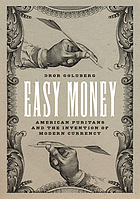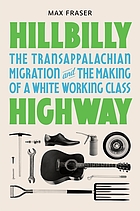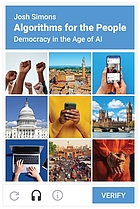Introducing The Friday List! Every week, new books are arriving at RLB Library and to keep you up-to-date on what has come in, we’ll be posting the most recent 30 days of arrivals every Friday. The link below will take you to a catalog listing so that you can explore and find titles that interest you. Be sure to check back regularly to see what else has arrived!
THE FRIDAY LIST
If you want some ideas on what to read, here are some highlights:

Easy money : American Puritans and the invention of modern currency, Dror Goldberg, 2023
A sweeping new history of the American origins of modern money. Economists debate endlessly the nature of fiat monetary systems-coins and bills whose value is guaranteed by a government or other authority. But the actual origins of these fiat currencies have received little attention. With Easy Money, economic historian Dror Goldberg tells the origin story for fiat currency in North America (and maybe beyond): the little-known example of the Massachusetts colony at the end of the 17th century. As the young colony grew into passive self-governance, and as its economy became increasingly complex, the need to formalize a smooth exchange emerged. Printing local money followed. Goldberg’s story illustrates how colonial Americans invented modern money by shifting money’s foundation from intrinsically valuable goods to the authority of the state. Whereas other governments had tied currencies unit to gold (and would continue to do so until the Great Depression and beyond), Massachusetts tied its local money to the assurance of a government: This money came from the state treasury, and it’s the only currency you can use to pay for x things, so use this money. Goldberg’s narrative traces how this happy accident has grown into a worldwide monetary system in which, monetarily, we are all Massachusetts. As Goldberg illustrates, the road to fiat currency has not been linear. Weaving monetary economics and American history, Easy Money is a new, highly novel starting square for the modern history of monetary systems.

Hillbilly Highway The Transappalachian Migration and the Making of a White Working Class (eBook), Max Fraser, 2023
Over the first two-thirds of the twentieth century, as many as eight million whites left the economically depressed southern countryside and migrated to the booming factory towns and cities of the industrial Midwest in search of work. The “hillibilly highway” was one of the largest internal relocations of poor and working people in American history, yet it has largely escaped close study by historians. In Hillbilly Highway, Max Fraser recovers the long-overlooked story of this massive demographic event and reveals how it has profoundly influenced American history and culture–from the modern industrial labor movement and the postwar urban crisis to the rise of today’s white working-class conservatives. The book draws on a diverse range of sources–from government reports, industry archives, and union records to novels, memoirs, oral histories, and country music–to narrate the distinctive class experience that unfolded across the Transppalachian migration during these critical decades. As the migration became a terrain of both social advancement and marginalization, it knit together white working-class communities across the Upper South and the Midwest–bringing into being a new cultural region that remains a contested battleground in American politics to the present.

Algorithms for the people : democracy in the age of AI (eBook), Josh Simons, 2023
Artificial intelligence and machine learning are reshaping our world. Police forces use them to decide where to send police officers, judges to decide whom to release on bail, welfare agencies to decide which children are at risk of abuse, and Facebook and Google to rank content and distribute ads. In these spheres, and many others, powerful prediction tools are changing how decisions are made, narrowing opportunities for the exercise of judgment, empathy, and creativity. In Algorithms for the People, Josh Simons flips the narrative about how we govern these technologies. Instead of examining the impact of technology on democracy, he explores how to put democracy at the heart of AI governance. Drawing on his experience as a research fellow at Harvard University, a visiting research scientist on Facebook’s Responsible AI team, and a policy advisor to the UK’s Labour Party, Simons gets under the hood of predictive technologies, offering an accessible account of how they work, why they matter, and how to regulate the institutions that build and use them. He argues that prediction is political: human choices about how to design and use predictive tools shape their effects. Approaching predictive technologies through the lens of political theory casts new light on how democracies should govern political choices made outside the sphere of representative politics. Showing the connection between technology regulation and democratic reform, Simons argues that we must go beyond conventional theorizing of AI ethics to wrestle with fundamental moral and political questions about how the governance of technology can support the flourishing of democracy.

Escape to the city : fugitive slaves in the antebellum urban South (eBook), Viola Franziska Müller 1987, 2022
Viola Franziska Müller examines runaways who camouflaged themselves among the free Black populations in Baltimore, Charleston, New Orleans, and Richmond. In the urban South, they found shelter, work, and other survival networks that enabled them to live in slaveholding territory, shielded and supported by their host communities in an act of collective resistance to slavery.